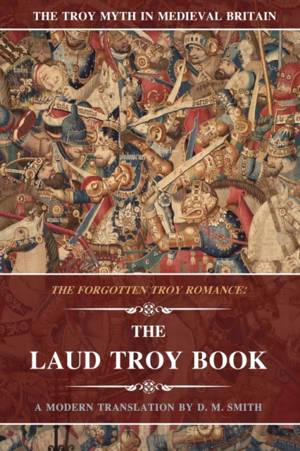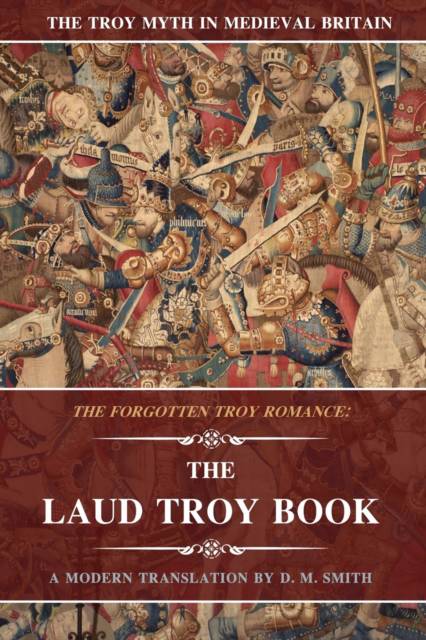
- Retrait gratuit dans votre magasin Club
- 7.000.000 titres dans notre catalogue
- Payer en toute sécurité
- Toujours un magasin près de chez vous
- Retrait gratuit dans votre magasin Club
- 7.000.000 titres dans notre catalogue
- Payer en toute sécurité
- Toujours un magasin près de chez vous
Description
In medieval Britain, the works of Homer were practically unknown. In his absence, the half-remembered story of the Trojan War took on a distinctly Arthurian flavour, with the heroes Achilles and Hector reimagined as armoured knights on horseback, duelling with broadsword and lance. Of the various British poetical histories of the Trojan War, the Laud Troy Book is perhaps the least studied. This untitled, 18,664-line poem survives in the unique MS. Laud Misc. 595, which once formed part of a collection of medieval manuscripts belonging to the Archbishop William Laud-a favourite of Charles I, executed for treason in the lead-up to the English Civil War. Dating from about 1400 AD, the Laud Troy Book represents an anonymous Middle English poet's attempt to render the Latin prose Historia Destructionis Troiae of Guido delle Colonne as a chivalric romance in octosyllabic verse-unwittingly restoring Guido's narrative to its twelfth-century roots in Benoît de Sainte-Maure's Roman de Troie. In the third volume in this series, the Laud Troy Book receives its first translation into Modern English. The text is fully annotated, with a glossary of uncommon and untranslatable words, and includes a detailed introduction tracing the development of the Troy myth from Homer and the Cyclic Poets to its re-emergence as a courtly romance in the Middle Ages.
Spécifications
Parties prenantes
- Auteur(s) :
- Editeur:
Contenu
- Nombre de pages :
- 546
- Langue:
- Anglais
- Collection :
- Tome:
- n° 3
Caractéristiques
- EAN:
- 9781694627957
- Date de parution :
- 06-10-19
- Format:
- Livre broché
- Format numérique:
- Trade paperback (VS)
- Dimensions :
- 152 mm x 229 mm
- Poids :
- 721 g







